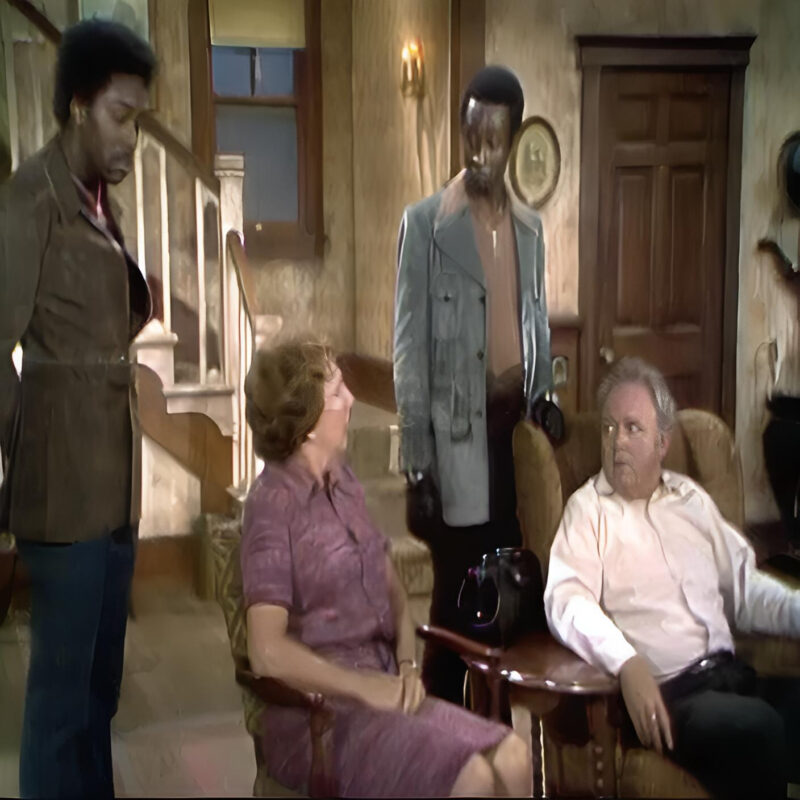
“All in the Family,” an iconic sitcom that first aired on January 12, 1971, wasn’t just a show; it was a revolutionary force in television history. Bold and controversial, it tackled issues previously untouched on TV, from racism to women’s rights, and it left an indelible mark with its seven spin-offs that continued breaking boundaries. Here’s a closer look at these influential series:
“Maude” (1972-78)
Introduced as Edith’s cousin, Maude (Bea Arthur) was a towering, ultra-liberal feminist who drove Archie crazy. The show’s second season opener tackled her husband Walter’s alcoholism, with Variety noting it showcased sitcoms treading into more realistic territories than dramas. Another groundbreaking moment was Maude’s decision to have an abortion, underscoring the show’s commitment to tackling hot-button issues. Bea Arthur’s performance, especially in the episode where she’s the sole actor, remains unforgettable.
“Good Times” (1974-79)
A spin-off of a spin-off, “Good Times” followed Maude’s maid Florida (Esther Rolle) and her family, making it the first TV show to feature a full Black family. The breakout star, Jimmie J.J. Walker, became famous for his catchphrase “Dy-no-mite!” The show’s impact deepened with the addition of Janet Jackson to the cast in its fifth season.
“The Jeffersons” (1975-85)
Inspired by a visit from Black Panther Party members who critiqued the portrayal of Black families on TV, “The Jeffersons” featured George and Louise Jefferson, former neighbors of the Bunkers, as they “moved on up” to a better life. This series, celebrated for its portrayal of an affluent Black family, ran for 11 seasons, making it Tandem’s longest-running show.
“Archie Bunker’s Place” (1979-1983)
Following “All in the Family,” this show featured Archie running a tavern with his partner Murray. Danielle Brisebois shone as Stephanie, a young girl who moved in with the Bunkers, adding fresh energy to the storyline. While Edith and Gloria made occasional appearances, Jean Stapleton and Sally Struthers eventually moved on to other projects.
“Checking In” (1981)
Marla Gibbs starred in this short-lived spin-off as Florence, who left her job with the Jeffersons to work in a hotel. Despite lasting only four episodes, Gibbs’ return to “The Jeffersons” was eagerly welcomed by fans.
“Gloria” (1982-83)
Gloria Bunker Stivic (Sally Struthers) navigated life as a single mom working in a veterinary office. With a strong supporting cast, including Burgess Meredith, the show explored Gloria’s resilience and strength, though it lasted just one season.
“704 Hauser” (1994)
More than two decades after “All in the Family,” Norman Lear created “704 Hauser,” revisiting the iconic address now occupied by a new family. This time, the generational conflict flipped, featuring liberal parents and a conservative son. Though it aired only five of its six episodes, the show continued Lear’s tradition of provocative, thoughtful television.
These spin-offs from “All in the Family” not only entertained but also challenged societal norms, making a lasting impact on television and culture.
